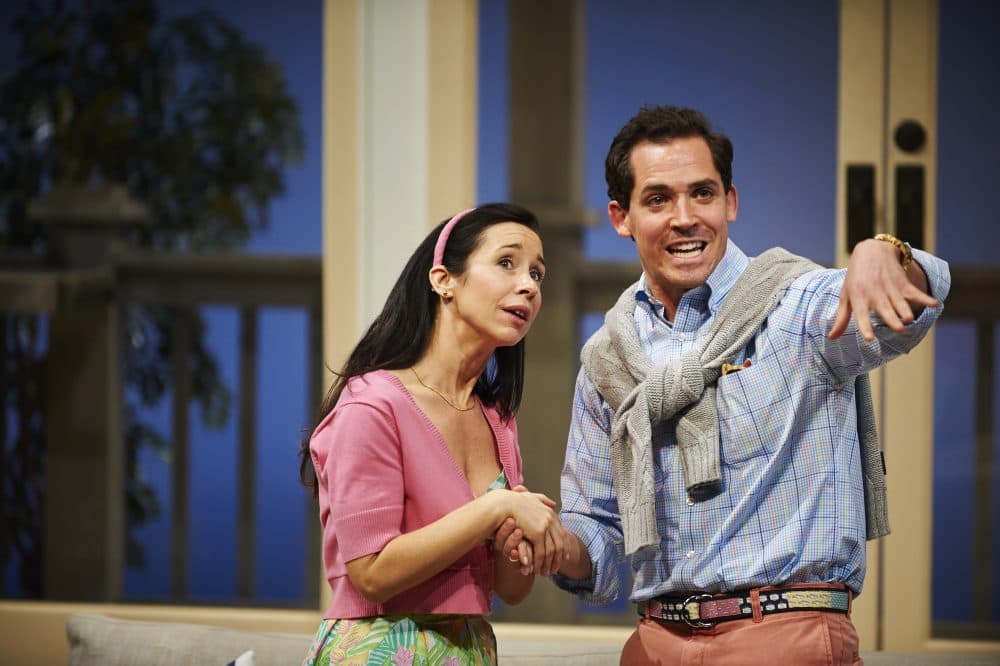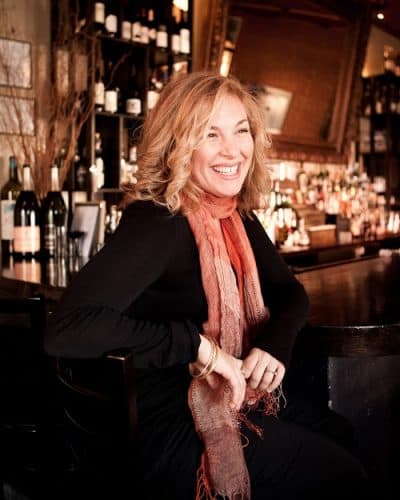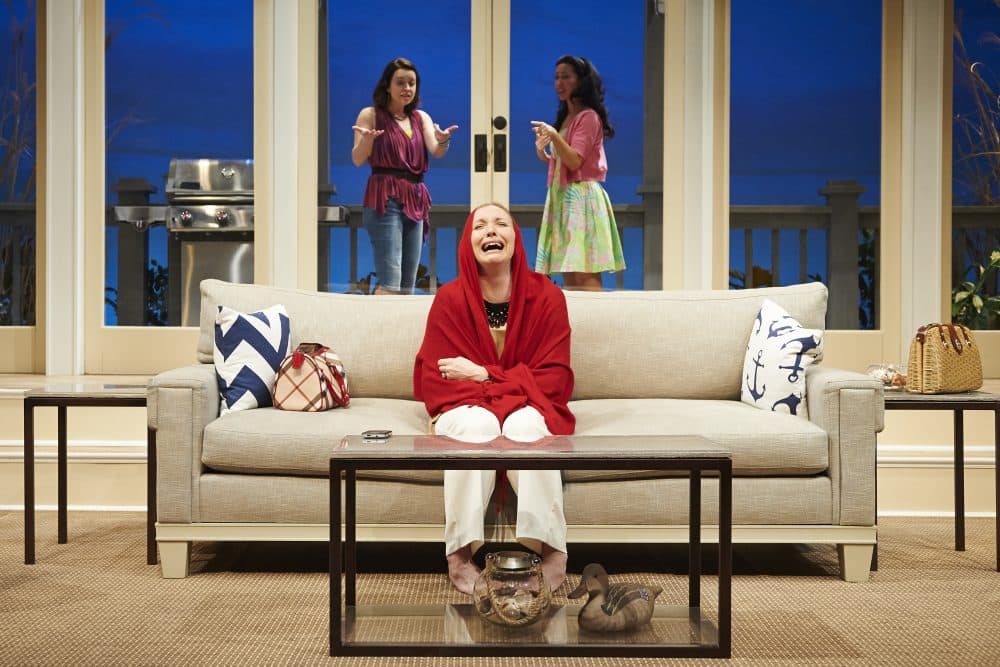Advertisement
'Elemeno Pea' Explores The Sacrifices We Make For Privilege

If you become increasingly overwhelmed by the staggering opulence comprising the backdrop of Molly Smith Metzler’s new play, "Elemeno Pea," you’re not alone: The feeling is mutual.
Metzler, an alumna of Boston University’s graduate playwriting program, wrote "Elemeno Pea’s" first draft back in 2011, based on her own experiences waiting tables at a yacht club on Martha’s Vineyard, where she spent her summer surrounded by markers of luxury: boats, guest houses and perfect tans. The play is in its local premiere at the Boston Playwrights' Theatre from Thursday, Nov. 2 to Nov. 19.
“I felt jealous,” Metzler tells me on our chat over the phone. “I felt kind of like life isn’t fair.” That’s the play’s starting point, too. Devon, an outsider to the Vineyard’s affluent culture, arrives on the island to pay a visit to her sister, Simone, once an outsider herself, now an active participant in and beneficiary of its endless array of perks and privileges. She lives free of charge on the sprawling property of her employer, Michaela, wife of billionaire Peter Kell. She is handsomely compensated, pulling in six figures annually plus an allowance for maintaining her wardrobe. She has access to all the same amenities as her boss and she doesn’t have to think about student loans, either, because Michaela generously paid them all off.

Simone has it made. The degree to which she has it made inspires awe, though awe here is just a disguise for envy at best and contempt at worst. "Elemeno Pea’s" arc pits sibling against sibling as Devon appraises the transformational effect Simone’s career has had on her. Like Metzler, their background is middle class, in stark contrast to the Vineyard characters’ 1 percent lifestyle, connoting such unthinkable monetary freedom that characters can literally buy friendship if they so desire.
To Devon, Simone has become a completely different person under the influence of the Kells’ money. To Simone, Devon is just jealous. The catalyst that causes these grudges to bubble to the surface is Michaela herself, who returns unexpectedly to the play’s beach estate set in a fit of pique and causes mayhem of the most melodramatic order. But this is where "Elemeno Pea" differentiates itself from other stories, whether on stage or screen, about how the ultra-rich live: Metzler lets her audience see Michaela’s endless advantages and comforts, but she cares deeply about the human being in crisis beneath. Critiquing privilege in narrative form is a risk-free enterprise; with "Elemeno Pea" Metzler aims for something more.

“When I went back to New York,” Metzler says, recalling the people she met during her season on the Vineyard, “I really felt like they were some of the most complicated and sad humans I’d ever been around, and that I was really wrong to be envious of these women.” Unsurprisingly, there were exceptions, but after watching Michaela’s arc unfold on stage, you’ll understand why anyone might feel pity for a moneyed person: Class, the play suggests, is something that people perform.
“Class is something that I write about consistently because I think it’s fascinating, but I also think it is a bit of a performance,” Metzler explains. “One of the things that shocked me is that the richest woman at the yacht club, who had the highest net worth, was also the biggest piece of white trash. Class has nothing to do with income. It has nothing to do with net worth. It’s kind of this imposed structure, and it’s a mask that we all put on and wear.”
This sentiment applies best, perhaps, to Simone, who tries mightily throughout the play to shrug off her Buffalo roots. They aren’t, for lack of a better phrase, beach estate people, but Simone’s indoctrination into that way of life is complete as "Elemeno Pea" opens. The dichotomy is necessary, though, for grounding and even humanizing Michaela. Metzler describes the characters' relationship in terms of the Titanic: “Devon’s on a ship that’s sunk, I always think of Simone as the Titanic -- it is going down, she’s desperately trying for her life to get off, and here’s Michaela on what looks like the most massive, successful ship that there is. But who cares if the sacrifice is something you have to live with, like what she’s given up?”

Maybe we shouldn’t be surprised at Metzler’s empathy for a character who is, on the surface, seemingly impossible to empathize with. Her gig as the executive story editor on the most recent season of Netflix’s "Orange is the New Black" accords empathy to a slew of people society judges right off the bat. But Michaela isn’t horrible; she’s merely privileged, and "Elemeno Pea’s" thesis is all about the “price tag,” as Metzler puts it, on Michaela’s decisions, and on the entitlements of her station.
“But privilege itself doesn’t interest me as much as basically the sacrifice we make to get that privilege,” she adds. “I would rather be Devon than Michaela at the end.”
"Elemeno Pea" is at the Boston Playwrights' Theatre from Nov. 2-19.
